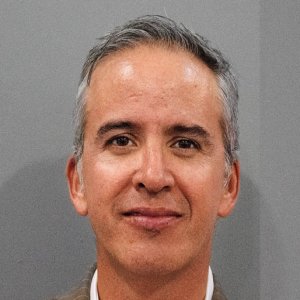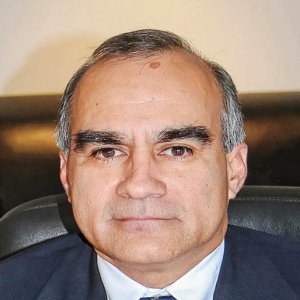Undersecretariat the First Step to a Long-Term Mining Policy

STORY INLINE POST
Q: How have global political events changed Mexico’s mining industry outlook and what does the country need to do to weather further storms?
A: Conditions are changing in a significant way and without doubt, all sectors are facing a new context and new hurdles. Mining is no exception. In Mexico, we need to re-evaluate our mining policy. One of the main points CAMIMEX is fighting for is the implementation of a long-term state mining policy. This policy should be developed jointly with federal and municipal authorities and obviously with those that know the sector, such as operators, geologists and academics.
In our opinion, there is no stable mining policy. The last few administrations have only implemented mining programs that stipulate the plan that will be developed for that particular term. What we need is a policy that lays out the investment, the promotion and the objectives over the course of 10, 20 or 50 years. The mining industry is one that requires long periods for an investment to mature and pay off. In the best-case scenario, exploration takes around seven years, at which point construction begins and the mine can continue to produce. But in other cases, it can take 20 years just to explore the property. This is why a long-term mining vision is essential for the industry’s survival.
Q: How has the government proven its commitment to the sector with the creation of the mining Undersecretariat?
A: Fortunately, this year the mining Undersecretary was appointed after 24 years without such a position. Without a doubt, this is good news for the sector. CAMIMEX believes that this will give a boost to the industry because there will be more weight behind the promotion and development of mining activities. The Undersecretary now holds the same level of power as his peers in other ministries. It is a very good indicator and may allow us to continue pushing for the long-term mining policy we want.
Q: How will the 2018 presidential elections affect the continuity of mining policy?
A: This is exactly what worries us. It is important to have continuity. We will have to wait and see what the results will be but whatever the outcome, we are dedicated to working with the government for the promotion of the sector, regardless of ideologies. The most important task is being able to communicate the importance of mining for our country because many people do not recognize its value. Essentially, Mexico is a mining country, not because miners decided it should be that way but because of its rich mineralization and resources. In fact, Mexico is often ranked as one of the most promising mining countries in the world because of the reserves it holds. Often, when people think of mining, they imagine the mines of the past when rudimentary methods were employed. On the contrary, Mexico has a mature and modern industry that is socially and environmentally conscious.
Q: Given that the mining taxes have been in force now for three years, how do you evaluate the reaction of the industry?
A: Unfortunately, the taxes were conceived at a time when metals prices were at their peak, in 2011-2012. But when they were enforced in 2014, the prices had already been suffering for a few years and the new taxes jeopardized the industry’s competitivity. In 2011, Mexico placed 11th on a global level as an attractive investment destination on the Fraser Institute’s survey but in 2016, Mexico was in 50th place. This shows us that something is definitely wrong. The situation illustrates that it is necessary to revise the country’s fiscal framework in terms of mining, and this is what we are fighting for.
Our global position in exploration has also dropped. In 2011, Mexico was in fourth place and ranked higher than our closest competitors, Peru and Chile. Now we are in sixth place and those two countries have surpassed us. Another piece of evidence that demonstrates Mexico’s declining attractiveness is that more than 169 projects have been deferred or suspended. These international studies show that the new taxes, the lack of juridical certainty and the lack of security have become very dissuasive factors for investment in Mexico.
Q: How do you evaluate the Ecological Tax imposed by the Zacatecas state government and how will this situation unfold?
A: We reject these types of taxes for a variety of reasons but primarily because we feel they are unconstitutional. We understand that two amparos have been received on behalf of two companies and that they have a valid argument against the tax. But one only needs to look at the figures on how much competitivity we have lost as a result of the federal taxes to realize that an additional state-level tax would be catastrophic.
Q: What is the likelihood the Sonora governor’s proposal to eliminate nondeducibility of exploration expenses will come to pass?
A: We are optimistic. Ultimately, we will be able to convince the government of the importance of the previous structure whereby pre-operative exploration expenses could be deducted in the same fiscal year they were made. We greatly welcome the support we are receiving from the governors of states like Sonora and Durango. Part of our mission is to approach various governors to explain the benefits of mining and what it means for the country and communities.
Q: How important is Mexico’s relationship with Canada and how can mining help to strengthen it?
A: Canadian companies, to a large extent, tend to be the ones that carry out most exploration activity in Mexico. Canada has developed a great deal within the mining industry on a global scale, advancing technology, creating new financing options and prioritizing traditional ones. The TSX and the TSXV are useful tools to finance exploration activity in Mexico. In Mexico, Canadian companies have consistently demonstrated that they are demanding in terms of compliance with rules and regulations.
Q: What do you predict for the industry in terms of prices, taxes and exploration activities?
A: Judging by the current situation, I think mining companies will continue to be cautious. I do not foresee any issues with the companies that are already wellconsolidated in the country but I think their focus will be on continuing to make their operations more efficient and increasing production. I think all companies will be cautious and will prefer to invest in existing projects rather than initiating greenfield activity. In terms of prices, production and exploration investment, I believe that in 2017 and 2018 we will continue to see similar behavior to that in 2016.
We are continuing to face challenges and we will continue to work toward exploration expenses being deductible in the same year they are made. It is also important to revise the current fiscal framework and schemes. For companies that already invest independently in the environment and social issues, it would be welcome if this were taken into account when calculating the taxes, which would allow us to return to our position as one of the world leaders in mining. We want the government to see mining as a strategic sector with a bright future.
























